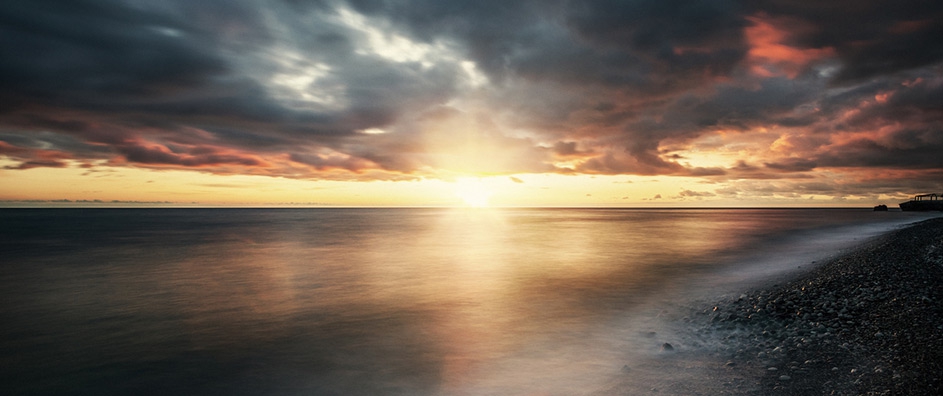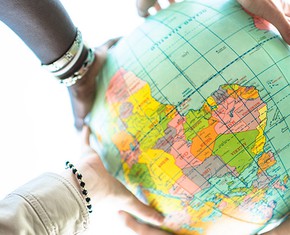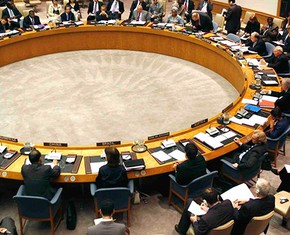The views expressed in our content reflect individual perspectives and do not represent the authoritative views of the Baha'i Faith.
My family and I live in British Columbia, Canada, very near the border with the United States. Today it looks pretty dark over there.
From our 12th-story window in Victoria, British Columbia, I can see the communities nestled along the shores of Vancouver Island, and across the Salish Sea to the snowy peaks of Washington State, our neighbor to the south. As I sit working, weather systems often form and move in, temporarily smothering the coast in fog or rain or threatening storm clouds before moving on again.
Current affairs often remind me of the shifting skies, with worldviews like competing weather systems on the horizon, some darker than others. Although I don’t believe in evil as an entity, ignorance is a fearsome cousin whose effect is less than benign.
We can easily get caught up in the celestial theatre of such philosophies. Immense clouds reverberate with thunder, smothering all birdsong, footstep, subtlety, nuance. When a storm approaches it rivets our attention; nature’s power induces a sort of awed paralysis.
Today the sky is clear in the east. As I look away at the neighboring expanse of blue, I wonder if it can even be called a weather system. Its peacefulness reads as absence. Despite the clear weather, our survival instinct invariably draws us to the reigning furor next door.
The dominant worldview has no qualms about power and sees no alternative to combat. Regardless of any innocent intent, it’s given us enormous stockpiles of nuclear weapons, invasive intelligence agencies, burgeoning military budgets and millions of displaced persons desperate to find a safe haven.
Lacking a positive vision, we seem to default toward the past. We design new weapons based on old wars. We plan the future based on past mistakes. But clearly the wisdom of heeding history carries the caveat that its dimly lit passages are difficult to interpret.
Present politics and culture are heavy with dystopian futures extrapolated from past errors and potential tragedies. But where are the visionaries who can touch our imaginations and awaken a desire to create a better world?
Let me introduce you to one such visionary—Mirza Husayn Ali, known as Baha’u’llah, a gentle soul and the founder of the worldwide Baha’i Faith, rewarded with exile and long imprisonment for his peaceful message. “Let your vision be world-embracing,” he said before the modern age had even begun, when he walked the streets of Tehran, Baghdad, Adrianople, and Akka. This year, 2017, marks the 200th anniversary of Baha’u’llah’s birth.
His teachings revolve around the sun of world unity, echoing and expanding upon the eternal virtues of other philosophies and faiths. The greatest need of the present age, Baha’u’llah said, is to see all of humanity as one. We can then build a stable future, rising above our differences, embracing and valuing diversity.
That beautiful Baha’i vision stands in sharp contrast to these dark days. It calls us to a higher plane, asking us to gain enough altitude to be able to see the patterns and connect the dots of all our cultures and faiths in one cohesive picture:
We have enjoined upon all mankind to establish the Most Great Peace—the surest of all means for the protection of humanity. The sovereigns of the world should, with one accord, hold fast thereunto, for this is the supreme instrument that can ensure the security and welfare of all peoples and nations. – Baha’u’llah, Tablets of Baha’u’llah, p. 125.
Baha’is believe that great peace, which poets, philosophers and prophets have dreamed about for millennia, has now become a global imperative:
The Great Peace towards which people of goodwill throughout the centuries have inclined their hearts, of which seers and poets for countless generations have expressed their vision, and for which from age to age the sacred scriptures of mankind have constantly held the promise, is now at long last within the reach of the nations. For the first time in history it is possible for everyone to view the entire planet, with all its myriad diversified peoples, in one perspective. World peace is not only possible but inevitable. – The Promise of World Peace, The Universal House of Justice.
An unclouded, bright blue sky can hurt the eyes at first. If you look you can see a future that’s compassionate, cooperative, transparent, values-based, rights-based, democratic.
That’s a lot of light.
I’m looking out the window and thinking it’s a weather system worth rooting for.
You May Also Like
Comments

















words of all Manifestations, make a better future possible.
By 174 AD Christianity was in a state of anarchy yet Jesus' words enabled His Faith to transcend
the weaknesses of the people of those ancient times. For ...Baha'is this is 174 BE and the promise
of world peace is much favored, thought possible, by a much more mature humanity.